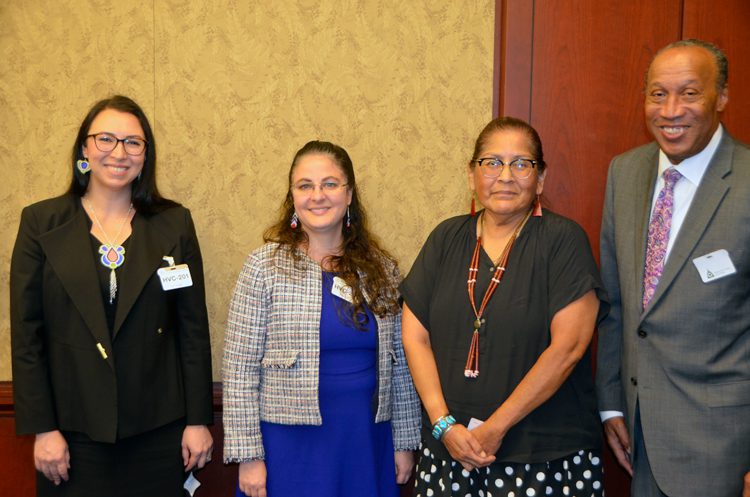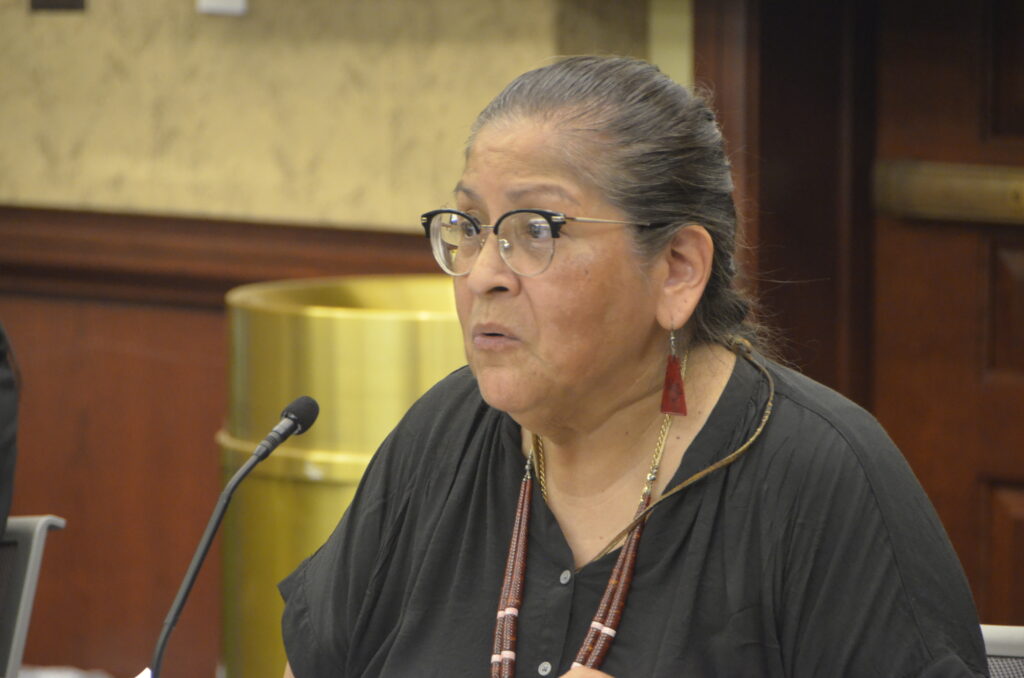ICWA BRIEFING FOCUS ON NATIVE CHILDREN
On September 20, 2022, social workers, advocates, and Hill staffers gathered in Room HV201 in the Capitol Visitor Center to discuss how Congress might respond if the United States Supreme Court rules the Indian Child Welfare Act (ICWA) is unconstitutional. Co-hosted by CRISP and the National Foster Youth Initiative, the briefing was held in conjunction with the Congressional Social Work Caucus and the Congressional Caucus on Foster Youth. Congresswoman Barbara Lee (D-CA-13), chair of the Social Work Caucus, provided a video greeting to set the tone for the briefing.
CRISP Legislative Director Angelique Day, an associate professor at the University of Washington School of Social Work and a descendant of the Ho Chunk nation, consisted of Kathryn Isom-Clause, Bureau of Indian Affairs Deputy Assistant Secretary for Policy and Economic Development; Kristen Torres, MSW, child welfare legislative aide for Rep. Judy Chu (D-CA-27); and Sonia Begay, a member of the Navajo Nation and grandparent caregiver who provided compelling testimony about her experiences with ICWA during the time she sought parental custody of her grandchildren who attended the briefing.
The briefing began with opening remarks from CRISP director Dr. Charles E. Lewis Jr., followed by remarks from Rebecca Louve Yao, executive director of the National Foster Youth Institute, a nonprofit organization founded by Rep. Bass to


























No comments:
Post a Comment
Please: Share your reaction, your thoughts, and your opinions. Be passionate, be unapologetic. Offensive remarks will not be published. We are getting more and more spam. Comments will be monitored.
Use the comment form at the bottom of this website which is private and sent direct to Trace.